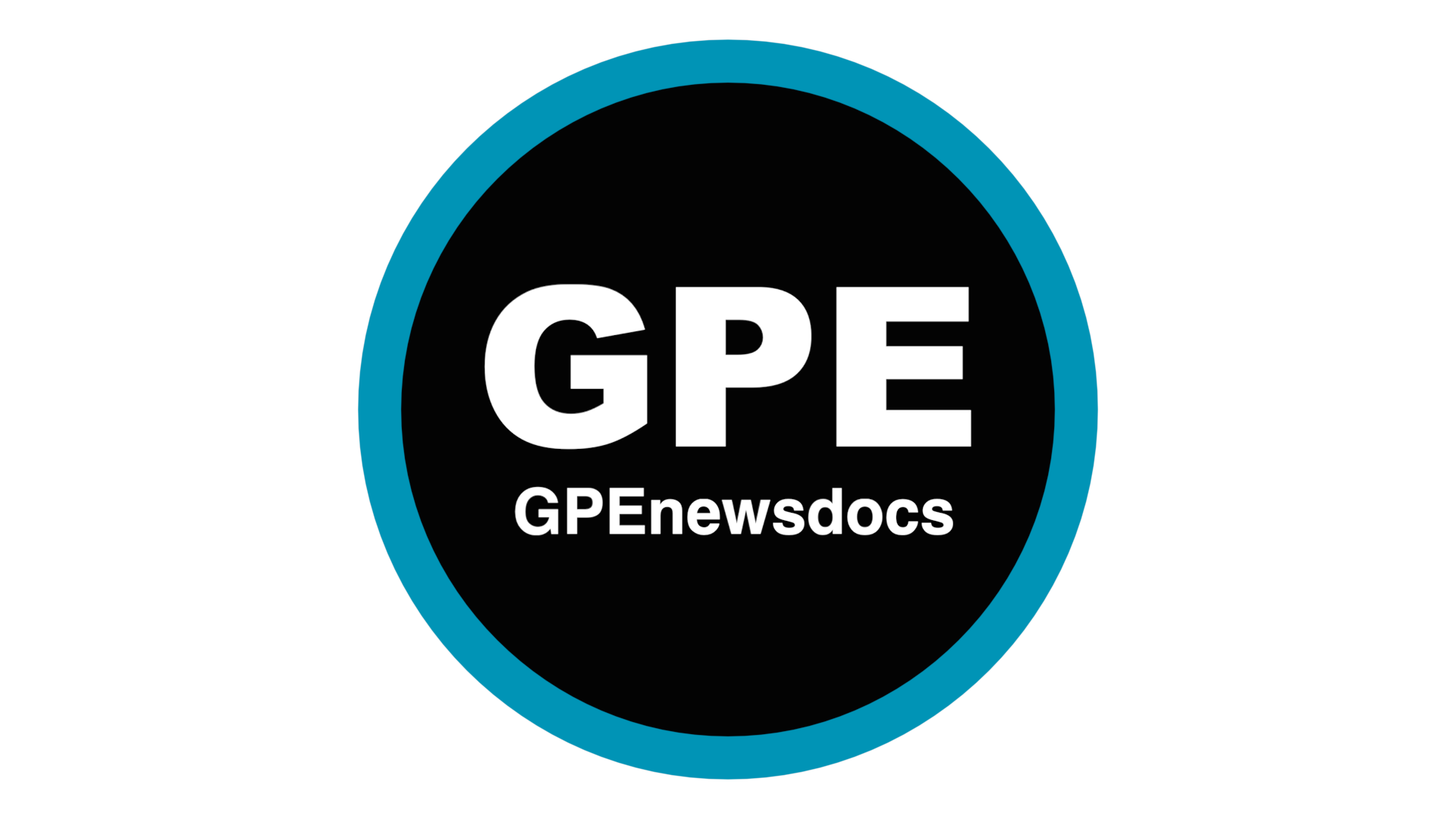There is no easy monetary fix for the problems of modern capitalist economies; deep problems in the economy cannot be solved by trying to control the money supply; nothing is stopping the government from ensuring money gets created for good purposes like government services and infrastructure are among key takeaways of Part 3 in discussion with Jo Michell.
June 6, 2018 Produced by Lynn Fries
TRANSCRIPT
LYNN FRIES: It’s The Real News, coming to you from Geneva, Switzerland. I’m Lynn Fries. The original blueprint for ending fractional reserve banking was the Chicago Plan of the 1930s. Milton Friedman, a proponent of the Chicago plan, thought that the problems of the 1930s were caused by a shrinking money supply due to bank failures. He was deeply opposed to Roosevelt’s plan, which emphasized a preeminent role for fiscal policy solutions to overcome problems of the Great Depression, The New Deal.
Today, current plans to strip banks of their ability to create money and so end fractional reserve banking are being advocated in monetary reform proposals like the Swiss Sovereign Money Initiative. A Yes/No vote on this initiative will be held in Switzerland under a national referendum.
This is Part 3 of a conversation on whether implementation of this kind of sovereign money proposal will bring about a more fair and stable banking system and help solve problems like inequality and environmental degradation. Joining us for this concluding segment is our guest, Jo Michell, a Professor of Economics at UWE Bristol, the University of the West of England. Welcome back, Jo.
JO MICHELL: Hi. Thanks.
LYNN FRIES: The Swiss Sovereign Money Initiative is essentially based on monetary reform proposals advocated by Positive Money, in your neck of the woods, England. Tell us about the read through, as you see it, between the thought of Milton Friedman and Positive Money.
JO MICHELL: Milton Friedman is a key figure in the so-called monetarist thinking. Milton Friedman argued that broadly speaking macroeconomic problems ultimately come down to monetary mismanagement. When you have too high inflation, too rapid growth, too much credit expansion, it’s because the money supply is growing too rapidly. And when you have the opposite, when you have a depression, this is because the money supply isn’t growing fast enough. There isn’t enough money in the economy. And actually, I mentioned earlier, in this experiment in the 1980s in the U.K. where they tried to restrict the amount of money to try and slow down the economy and try to control inflation, this was exactly an implementation of Milton Friedman’s ideas, the monetarist ideas.
And really I do see the Positive Money proposals as very close to this kind of narrow view. That, you know, just controlling money will control everything else in the economy. That very simple view about how the economy functions. Which overlooks all the difficult struggles, the power imbalances, the financial structure, employment structures and so on. All the really interesting complex things about the economy, just disappear in this view.
LYNN FRIES: Consequences of the current monetary system that get pointed to in the argument in favour of stripping banks of their ability to create money include problems like a lack of decent jobs, inequality, financial instability, environmental degradation. What’s your take on that?
JO MICHELL: I agree with the list of problems which they identify in modern capitalism. As you just listed them – environmental degradation, poor quality jobs, financial instability and so on. But my view is there is no easy quick monetary fix to these things. Each of these problems has deep complex roots and will require difficult decisions to be made to overcome them. I really don’t believe that there is some sort of magic quick monetary fix. I think that the proposals, the full reserve banking/sovereign money proposals in many ways could worsen some of these problems. For example, financial stability. If you try and restrict the ability of the banking system to accommodate the credit needs of the economy, then you’ll find that people go elsewhere. They go to the unregulated financial system. They go outside the formal banking system. And this could actually lead to worsening financial fragility. I think it would cause serious macroeconomic problems. I mean, first of all, I don’t think it could actually be implemented. What you would see is a failure to control the money supply because somehow financial institutions or private institutions would find ways to get around it. You’d get new credit instruments operating like money. So I don’t think it could even be implemented. An attempt to implement it would cause serious instability in the economy.
LYNN FRIES: In this conversation on the monetary system and central banks, let’s broaden the focus for a moment from proposals for sovereign money initiatives to other proposals that you are seeing in the U.K. What’s going on there?
JO MICHELL: There have been a number of proposals in the U.K. We have something called People’s QE, People’s Quantitative Easing. And there have been other similar proposals coming from various places. And in a nutshell, the argument is something like this. People say, we’ve had quantitative easing. We’ve had lots of new money being printed by the central bank and used to prop up the financial system. It’s free money. And it’s been given to the banks. Now, if they just printed this free money and given it to normal people to spend or used it to do something useful – to build infrastructure, do a low carbon investment strategy something like that – the outcome would be much better.
Now the problem with this is the part of the argument that says this is free money that was given to the banking system. That isn’t what quantitative easing is. It’s actually a much more technical thing. And all it involves is changing the type of financial assets that banks hold on their balance sheet. So what the central bank does is it prints new money, new reserve money, which we talked about earlier on, and it uses that money to buy something from a financial institution, maybe a government bond or something like that. So actually all that happens is that the composition of commercial bank balance sheets change. They are not any better off or worse off. All it means is they have a bit more time to get their bank balance sheets in order. And hopefully this, at least in the views of monetary policy makers, stimulates the economy, stimulates credit growth and so on. Now we could ask whether stimulating credit growth is a good thing to do in the aftermath of the credit crisis. But that’s a slightly different argument. But they conflate this technical process of just changing what banks have on their balance sheet with the idea of government spending. You know, actual physical government capacity creation or giving money to individuals.
The point is the government can do that at will. There is nothing stopping most governments -many governments, governments that have their own central banks and so on – from investing in new infrastructure. Interest rates are very, very low. Governments can issue bonds very, very cheaply. And I’ve been arguing for a long time in the UK, that’s exactly what we should be doing in the UK. Austerity has been a terrible mistake. And the government should be taking advantage of low interest rates to borrow and spend on infrastructure. These are really two quite different issues. One is a technical issue about the structure of the financial system and the other is a much more fundamental issue about the fiscal policy of the government.
LYNN FRIES: Under a blanket term of sovereign money, distinct proposals for the monetary system – the proposal to strip banks of their ability to create money and the proposal for a People’s QE often get conflated with each other and with fiscal policy. Can you briefly unpack these different types of activity starting with proposals for sovereign money and People’s Quantitative Easing?
JO MICHELL: Yes. These are, in my mind, almost sort of at odds with each other. Because the sovereign money proposal to strip the banks of the power to lend to bring money creation decisions into the hands of the government feels to me like a policy that kind of restricts growth of credit, to restrict growth of spending. Whereas on the other side, printing new money for infrastructure and so on is kind of doing the opposite, it’s stimulating new activity. It’s stimulating the economy.
Now, I suppose what the Positive Money response would be is that it’s a more useful outcome of money creation rather than speculation in real estate. We actually get new productive activity, which is a reasonable argument. But it does come down to this conflation of two different types of activity. And again there is nothing to stop the government doing this. We don’t need sovereign money. Sovereign money is actually a quite different proposal. We don’t need it for the government to be able to undertake these kinds of investments.
LYNN FRIES: So for the government to be able to undertake these kinds of investments there’s no need to change the monetary system?
JO MICHELL: Not at all. The government is able to issue bonds at very low rates of interest. If we did get to a position where interest rates were much higher and the government was now finding it difficult to finance its borrowing, then there might be a role for the central bank. You know to help stabilise interest rates and keep government costs down. But we’re a very long way from that position in this world of stagnant growth, very low interest rates, and so on. So I really don’t see any need to change the monetary system to allow governments the ability to do useful spending.
LYNN FRIES: Before wrapping up, to broaden the focus of this conversation even further, talk about how all this relates to the issue of inequality.
JO MICHELL: OK. I’d say there are two sides to try and think about this issue of inequality, which is obviously a subject for a wider discussion. But I’d say there are two sides here. One is that there should be much more, I think, aggressive regulation and intervention into what banks can do. What they can lend against, what type of lending they can do. We want more lending to small businesses, more lending to investment, and so on, and ideally less credit going against the housing speculation and so on.
But on the other side, we need to ask why so many people are willing to indebt themselves just to get on the housing ladder. Or take up very big credit card debt just to cover basic necessities. And those, I think, are reflections of deeper problems of the economy – a lack of housing supply, concentration in urban areas, widening inequality because wages haven’t kept up with economic growth and productivity growth and so on. And actually, if you were to start implementing measures to tackle those very difficult problems, and it’s not straight forward, but to tackle those issues – to reduce inequality, to make sure access to housing is more widespread – then actually, the demand for credit, I think, would go away, to a large extent. So you wouldn’t need to restrict banks in this sense, because they wouldn’t be trying to fuel these imbalances, these deeper imbalances. Or they wouldn’t we wouldn’t be issuing credit to make up for these imbalances in the economy.
So I see it as a two-sided thing. One is, yes, governments should enforce the power they have over banks and make sure the banks keep their side of the bargain. The other side is that the deeper issues, which I don’t think have monetary solutions, we need to think much more seriously about how to overcome these deep sort of power imbalances and problems in the economy. And if we do that, perhaps some of these monetary issues will be less severe.
LYNN FRIES: Let’s close with your concluding thoughts on the Swiss Sovereign Money Initiative, and the question of whether banks should be stripped of their ability to create money. As this issue is put to a vote, the Swiss national referendum has triggered public interest in monetary and economic issues among voters here in Switzerland. For the purpose of informing those voters and the wider public, what are your key takeaways?
JO MICHELL: OK. My concluding thoughts are that the proposal is based on a deficient understanding of the monetary and financial system. I think it’s very, very good that citizens more broadly are getting interested in these issues, are getting interested in monetary and economic issues. But they really do need to understand what it is they’re being asked to vote on. And unfortunately, monetary issues are one of the most difficult and sort of slippery in all of economics. And I think it’s quite easy for them to get, for the public to get sold stories which are half truths. And present half truths, and provide sort of straightforward simple solutions. I suppose my key point is that if there was a really nice simple technical fix to all of these very complex difficult problems of modern capitalism, perhaps we would have tried it already. And we have tried it already, actually, in a number of cases, and we know that these kinds of proposals don’t work.
So my takeaway would be that there are big problems with the banking system. There are big problems with macroeconomic policy, actually. I think there has been far too much focus on interest rate policy. Not enough focus on, at least in the UK, using the power of the government to spend – fiscal policy, investment and so on. We’ve had eight years of austerity, and the economy has really suffered as a result of that. So there are lots of big important changes we can and should be making. But we don’t actually require the kinds of reforms to the monetary system which are being proposed.
It might sound as if up until now I’ve been trying to defend the status quo. That’s not the case at all. The ability of banks to create money is part of a very complex agreement between a private profitmaking banking system and the government, because the government does stand behind that. It guarantees deposits at the banks. It gives, it’s like a franchise. It allows the banks this power to create money, which ultimately is backed by the state. It’s a claim on state money, because you can walk into the bank and get state money in return for your deposit. And my view is that banks haven’t kept their side of the deal. Or, maybe more accurately, governments haven’t enforced their side of the bargain onto the bank, and said in order to have this privilege, in order to have this essential money creating capacity – which I do believe is essential in the modern financial capitalist economy – but in order for banks to be given and allowed this privilege they have to behave. They have to lend responsibly. They have to not try and make quick profits by blowing up credit bubbles and all of these issues.
So I think there are serious issues with the way banks have been under-regulated the way they’ve been allowed to get away with taking very risky bets, with the understanding the public will step in and bail them out with too big to fail problems. Which, by the way, you don’t solve by getting rid of money creation. You get rid of it by making banks smaller, or making sure they lend more responsibly. So I’m not in any way arguing for the status quo. Banks do need to face serious changes. But that comes as part of this deal, part of this deal of their ability to create money.
LYNN FRIES: We have to leave it there. Jo Michell, thank you.
JO MICHELL: Thank you very much.
LYNN FRIES: And thank you for joining us on The Real News Network.
END TRANSCRIPT
Dr. Jo Michell is Associate Professor in Economics at the University of the West of England, Bristol, where he teaches macroeconomics, banking and finance, and history of economic thought. He holds a Ph.D. from the University of London. His research interests include macroeconomics, banking and finance, growth and inequality, and the economic development of China.
Originally published at TRNN



